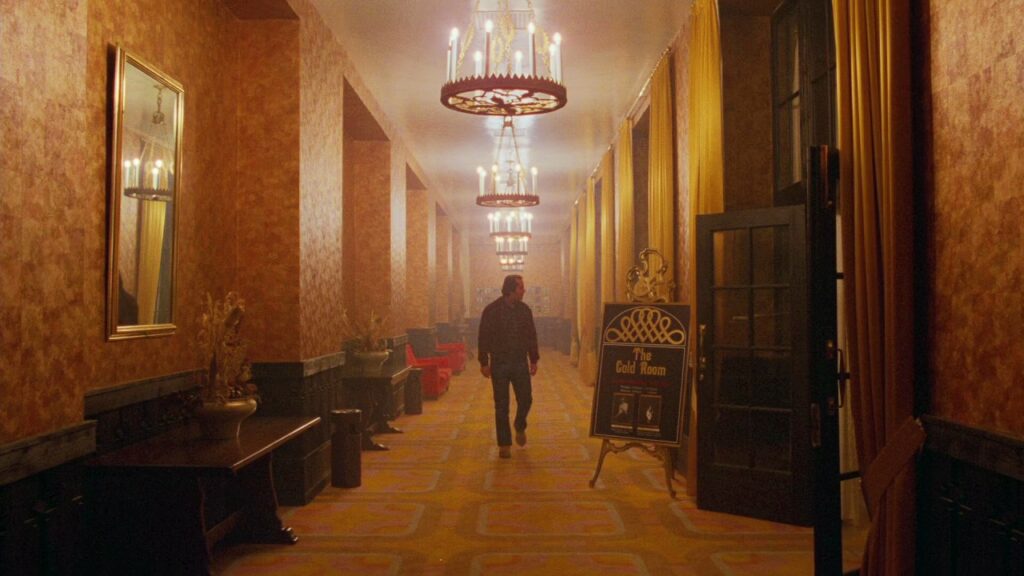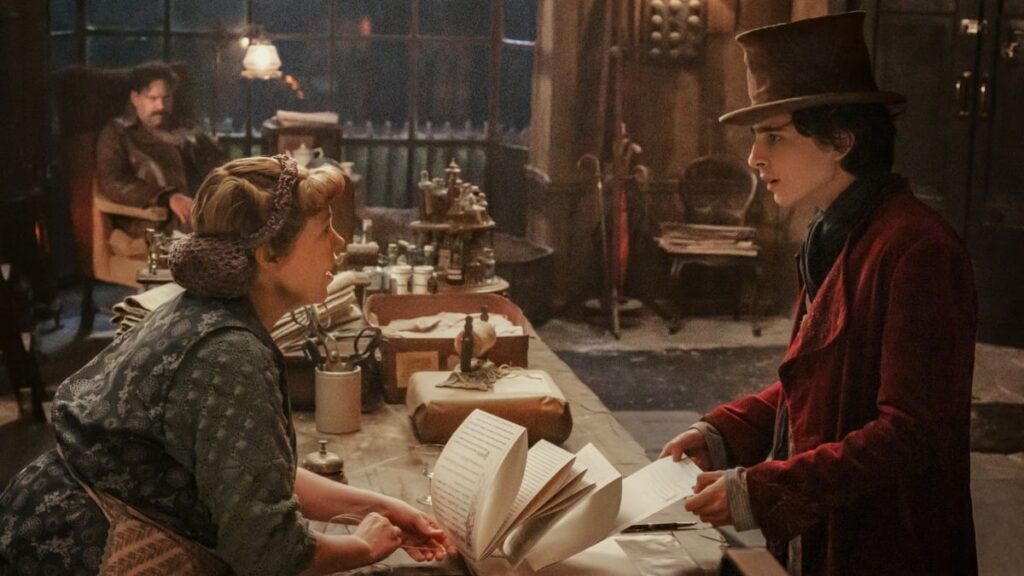What if I told you I could shave dozens of hours of work off your next screenplay? It’s simple. Stop putting so much time into description!

Not long ago, I was consulting on a screenplay. After I sent back the notes, which detailed some plot issues (the script lost a lot of its momentum in the second act) and some character issues (I didn’t feel like the main character was clear enough), I was surprised that the writer seemed unconcerned with either of these problems.
Instead, he was consumed with questions about his description. He asked me about a specific line describing a location on page 13, the introductory description of a secondary character not long after, and a couple of lines during a fight scene which he was concerned did not describe the fight in an exciting enough manner.
I’m not going to lie. I was frustrated. The script had way bigger issues than a random line on page 13 and whether a relatively unimportant character was described well. But then I remembered that when I first started writing, I was obsessive about this stuff as well. I would much rather spend a week on an already finished scene, trying to make sure every single word in the description was perfect, than tackle the glaring unlikability of my female love interest (haha, remember that terminology!)
There’s a reason for this. It’s because, when we start writing screenplays, we think that the most important thing is the WRITING. Which isn’t a surprise. “Screenwriting” has the word “writing” in it. Of course we’re going to think it’s about the writing.
It takes a while before we realize what screenwriting is really about. The storytelling. What is “storytelling” exactly? How does it differ from “writing?” Storytelling is the creative way in which we tell our story. From our plot choices to our character choices to our narrative choices. How we concoct that recipe has a massive effect on how the final dish tastes.
For example, when it comes to Strange Darling (major spoilers follow), another writer may have written that movie straight up. They may have told you, from the start, that the woman was the bad guy and the man was the good guy. To keep that information a secret for half the movie is a STORYTELLING CHOICE. And a strong one at that. It’s what makes the movie so enjoyable.
Think about that for a second. If that writer had spent 300 extra hours making sure every single descriptive line in the script was perfect BUT he told that story in a linear fashion (letting us know from the start that the woman was the bad guy), do you think the script would’ve been better or worse? Sure, it might have read cleaner and more descriptive on the page. But that pales in comparison to the feeling we got when that midpoint revelation arrived.
This is not to say that description isn’t important. Or that you shouldn’t pay attention to it. Description is kind of like sound in movies. We never think about sound unless it’s bad. Likewise, we don’t notice description unless it’s bad (clunky, lazy, or overtly generic).
Can sound actually improve a movie? Of course. In movies like The Zone of Interest, for example, the sounds of torture in the distance enhance the impact of the storytelling. But, in the end, we just want the sound to work, just like we want the description to work.
To that end, here are the three most important tips to remember when it comes to writing description in screenwriting.
Two lines per paragraph (or less) is best. Three lines if you’re writing a script that requires more description than usual.
These days, you really want your reader’s eyes moving down the page. So don’t write big paragraphs. Try to keep them short and to the point. “The woods were dotted with debris from the previous day’s vicious storm. Joe noticed many of the woodland animals up high in the trees, where they were safe, as if awaiting some official call from Mother Nature that going back to their daily routine was okay.” Do we really need the part about the animals? Couldn’t you get away with, “The woods were dotted with debris from the previous day’s vicious storm.” Ultimately, it’s up to you. But I find the second sentence to be unneeded.
Now, this changes if you’re writing the type of script that requires a lot of description. Ant-Man and the Wasp: Quantumania involves an entire universe that the reader is unfamiliar with. So you’re going to need to include a lot of description for that world. I might even say you can use some 4-line paragraphs in a script like that. But beware of writing too many of them as your description will start to look like a wall of text, which readers rebel against.
Prioritize description for the things that matter.
This is where a lot of newbie writers go astray. They treat description the same across the board. But that’s not the way to do it. Every element in your script has a “description priority level.” Wherever that element falls along that hierarchy determines how much description you want to use.
In the movie, “Wonka,” Willy Wonka is imprisoned at a “hotel” for most of the movie. This means that the hotel has a high description priority level. We’re going to see it again and again and again. So if your only description for a place like that is, “The hotel has an old-world charm, but the closer you look, the more decrepit it appears,” that’s simply not enough.

You’re going to need to tell us what the lobby looks like, how big the hotel is, if the rooms are big and cavernous or tight and claustrophobic. Is it clean or are there insects and rats scurrying about? Since we’re going to be in a lot of rooms here, it would be beneficial to lay out the geography of the hotel as well.
In comparison, if I remember correctly, there’s a scene in Wonka at a zoo. Because the zoo is one singular scene and because everybody has a good idea of what a zoo looks like, this description would have a very low priority level.
You describing it in some overly-detailed manner isn’t going to have a huge effect on how much the reader enjoys the scene. So it’s probably best to keep the description simple. “The sprawling urban zoo is complete with towering enclosures and winding paths, the air buzzing with distant roars and the chatter of children.” Boom, you’re done.
Now, let’s say you’re writing a movie like The Shining, where the entire movie takes place in that giant looming hotel. That’s a scenario where you want to – need to – go description crazy. Because the movie is built atop the atmosphere of this hotel. Every detail helps add to that atmosphere so it is okay to go hog-wild on your description.
Describe up to your writing ability level, but never above it.
One of the ways description stands out in the negative is when a writer tries to describe things in a manner above their writing level. Have you ever spoken to someone who throws SAT words into their sentences that aren’t used properly in an effort to sound smart? Same concept here.
“The golden-sand beach stood tall against the prospect of time, fighting a losing battle as every wave swooped at it like a thief in the night, taking one more coin from its pocket.”
Do you see the attempt to sound thoughtful and clever, when all the description does is give the reader a clunky not-so-clear picture of the beach? Luckily, description works best when it’s simple and clear. Which means you don’t have to be a wordsmith to write effective description.
“A quiet beach stretches along the coastline, golden sand meeting the gentle rush of waves.”
That’s 3rd grade English BUT IT WORKS. That’s the most important thing to remember when it comes to writing description. If it works, that’s all that matters.
Wrapping things up, I promise you that your story represents 95% of what the reader cares about. While strong description can help a script, particularly if it’s a highly visual concept, clarity and simplicity will pay higher dividends on the whole. Be visual but be CLEAR. Do that and you’ll be a-okay.
I’m still offering October screenplay and pilot consultation deals. $100 off my full rate. Plus an extra $50 off if it’s a horror or thriller related story. E-mail me at carsonreeves1@gmail.com and mention this post if you’re interested!

